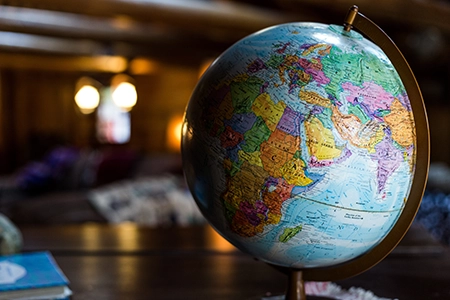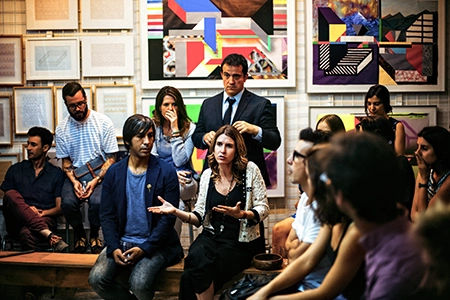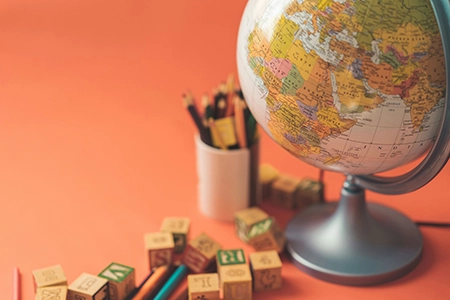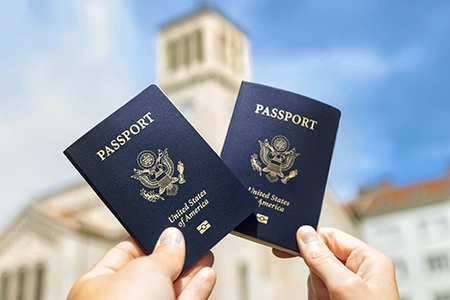In the intricate tapestry of international relations, the art of translation stands as a pivotal thread, weaving together diverse linguistic strands to create a coherent global dialogue. This craft, often undervalued, plays a central role in bridging the communication gap between nations, cultures, and people.
This exploration delves into the myriad ways translation shapes world affairs. From the hushed corridors of diplomatic negotiations to the bustling arenas of global trade, professional translators and linguists work tirelessly to transcend language barriers. Their skill ensures that mutual understanding and cooperation can flourish in a world of myriad tongues.
As we journey through this post, we’ll uncover the historical roots, present impact, and future implications of translation in international affairs. Join us in appreciating this indispensable tool’s subtle yet profound influence in shaping our interconnected world.

Discover Expert Turkish Translation Services
Looking for a top-notch Turkish translator? Haluk Aka Ltd. offers unparalleled expertise in translating a wide range of documents. Whether it’s for business, legal, or personal use, our team ensures accuracy and cultural relevance in every translation.
The Historical Context of Translation in International Relations
Tracing the annals of history, one finds that translation has always been a silent yet formidable force in international relations. Its roots are as old as human civilisation, where the need to communicate beyond language barriers was not just a matter of curiosity but of survival, diplomacy, and expansion.
In ancient empires, from Egypt to Rome, professional translators were pivotal in deciphering languages and scripts of conquered lands, thereby facilitating governance and integration. The famous Rosetta Stone, for instance, served as a crucial key in unlocking the mysteries of Egyptian hieroglyphs, showcasing the historical significance of translation in understanding diverse cultures.
The Middle Ages saw translators bridging the East and West. Scholars like Gerbert of Aurillac, who later became Pope Sylvester II, studied Arabic sciences and translated their works into Latin. This cross-cultural exchange fuelled the Renaissance, a period marked by an unquenchable thirst for knowledge and a profound respect for the world’s linguistic diversity.
In more recent history, the role of linguists has been instrumental in diplomatic relations. During World War II, codebreakers and translators were unsung heroes, deciphering encrypted messages, a testament to how translation can alter the course of history.
Thus, from ancient scripts to modern diplomacy, translation has not just been about converting words from one language to another; it has been about understanding intentions, emotions, and cultures. As we explore its role in contemporary world affairs, it’s crucial to acknowledge this rich historical tapestry that has shaped translation into a powerful tool in international relations.
Diplomacy and Translation
In diplomacy, where words can build bridges or burn them, translation is both delicate and crucial. In the nuanced exchanges between nations, the subtleties of language come to the forefront, demanding accuracy and a deep understanding of cultural contexts and sensitivities.
The art of diplomacy relies heavily on the skills of professional translators and interpreters. They are the ones who navigate the intricate nuances of language, ensuring that the true intent and tone of diplomatic messages are conveyed accurately. Considering the potential for misunderstandings in high-stakes international dialogues, this is no small task.
One of the most striking examples of the critical role of translation in diplomacy can be found in the United Nations, where interpreters and translators facilitate the flow of communication among member states. Their work transcends mere linguistic conversion, making complex political, legal, and cultural concepts accessible to all parties, regardless of their native tongue.
Moreover, translators are often the unsung heroes in bilateral and multilateral negotiations. The drafting of treaties and agreements hinges on their ability to provide precise and culturally sensitive translations. Any misinterpretation or error can lead to disagreements or miscommunications, potentially impacting international relations significantly.
Therefore, in the world of diplomacy, translation is not just a tool for communication; it is a means of ensuring peace, cooperation, and mutual understanding among nations. It stands as a testament to the power of language in bridging divides and forging lasting relationships in the global arena.

Seamless Turkish Translation for Your Needs
Navigate the complexities of the Turkish language with ease. At Haluk Aka Ltd., our Turkish translation services are tailored to meet your specific requirements, ensuring clarity and precision. Trust us to bridge the language gap.
Translation in International Law and Agreements
The sphere of international law and agreements is a complex tapestry, where precision in language is not just important, it’s paramount. Here, translation plays a critical role, ensuring that legal documents, treaties, and agreements are accurately translated and culturally and contextually aligned with the involved nations.
Legal translation is a field that demands the highest level of expertise and attention to detail. Professional translators in this domain must deeply understand legal terminologies and concepts across different legal systems. This is crucial because legal systems vary worldwide, each with a unique language and interpretation.
Consider drafting international treaties, a process where every word, phrase, and punctuation mark carries weight. The role of the translator extends beyond linguistic conversion; it involves ensuring that the legal intent and obligations are consistently maintained across all translated versions. A single misinterpretation in a legal document can lead to disputes or conflicts between nations.
Moreover, in international courts, such as the International Court of Justice or the International Criminal Court, translation ensures that justice is accessible regardless of the language spoken by the parties involved. In these scenarios, translators and interpreters become the voices of the plaintiffs, defendants, and witnesses, pivotal in delivering justice.
The challenge in legal translation lies in language proficiency and understanding the cultural nuances that influence legal interpretations. Hence, the translators’ work is integral in bridging legal systems, helping to create a sense of fairness and equity in international law.
In summary, translation in international law and agreements is a balancing act of linguistic skill, legal knowledge, and cultural sensitivity. It is indispensable in administrating international justice and maintaining global legal order.
The Impact of Translation on Global Trade
Global trade, a driving force of the world economy, hinges significantly on the power of communication. Translation emerges as a crucial enabler, breaking down language barriers that could otherwise hinder international business and economic partnerships.
In the ever-expanding marketplace, where businesses strive to reach a global audience, the role of professional translators is indispensable. They provide the linguistic bridge connecting products and services with diverse markets worldwide. From marketing materials to product manuals contracts to website content, translators ensure that businesses speak the language of their customers, wherever they may be.
Moreover, translation plays a vital role in business negotiations and trade agreements. Misunderstandings due to language differences can lead to misinterpretations, potentially derailing important business deals. Skilled translators help mitigate these risks by providing clear, accurate translations of negotiation terms and contractual agreements. Their expertise goes beyond language fluency; it encompasses an understanding of business practices and cultural nuances crucial in international trade settings.
Furthermore, in regulatory compliance, translation is key. Businesses expanding into foreign markets must navigate complex legal and regulatory landscapes. Translators ensure that businesses understand and adhere to these regulations by providing accurate translations of legal documents, thus aiding in compliance and preventing costly legal issues.
The economic impact of translation is profound. It enables small and medium-sized enterprises to compete globally, providing them access to international markets they would otherwise find impenetrable. This democratisation of global trade through translation not only boosts individual businesses but also contributes to the overall growth and stability of the global economy.
In essence, translation catalyses global trade, facilitating communication, fostering understanding, and ensuring that businesses can operate effectively across linguistic and cultural divides. It is a cornerstone upon which the edifice of international commerce is built.
Cultural Exchange and Translation
At the crossroads of cultural exchange, translation serves as a key facilitator, enabling the sharing and appreciation of diverse cultural expressions across the globe. In a world rich with art, literature, film, music, and more, the role of translation in cultural diplomacy is both profound and far-reaching.
The exchange of literature is a prime example. Through translation, literary works transcend their original language, allowing readers worldwide to explore stories, ideas, and perspectives from different cultures. Think of the classic works of literature that have shaped global understanding and empathy; many were experienced through the deft work of translators who bridged the linguistic divide.
In film and media, subtitles and dubbing play a pivotal role. They make movies, TV shows, and documentaries accessible to a global audience, fostering a deeper understanding of different societies, traditions, and ways of life. This accessibility entertains and educates, opening windows to otherwise unknown worlds.
Moreover, translation is vital in international art exhibitions and cultural festivals. Here, translators ensure that the essence of artworks, performances, and presentations is conveyed to an international audience, often providing context and background to enhance understanding and appreciation.
In music, translation helps interpret song lyrics, allowing listeners to connect with the emotions and stories behind songs from different cultures. This deepens the listener’s experience, transforming music into a universal language, transcending words.
Translation in cultural exchange also extends to the academic sphere, where research, theories, and discoveries are shared across linguistic boundaries. This exchange of knowledge enriches global education and fosters collaborative research efforts.
Cultural exchange, facilitated by translation, enriches individual lives and fosters mutual understanding and respect among different cultures. It breaks down stereotypes, builds bridges of empathy, and promotes global harmony. In essence, through the power of translation, the diverse tapestry of human culture becomes a shared global heritage accessible and appreciated by all.

Your Partner in Turkish Translation Excellence
Embark on a journey of seamless communication with Haluk Aka Ltd.’s Turkish translation services. Our team of experts is dedicated to delivering translations that resonate with your audience, maintaining the essence of the original text.
Challenges and Technology in Translation
While crucial in bridging gaps in global communication, the field of translation has its challenges. These hurdles range from the intricacies of language nuances to the rapid evolution of technology in the translation industry.
One of the primary challenges professional translators face is the complexity of conveying cultural nuances and idiomatic expressions. Languages are deeply rooted in their respective cultures, and certain phrases or concepts may not have direct equivalents in other languages. This demands linguistic expertise and a deep cultural understanding from the translator to ensure the essence of the original message is retained.
Additionally, the technical complexity of certain subjects presents another challenge. Legal, medical, or scientific translations require translators to have specialised knowledge in these fields. The accuracy of these translations is paramount, as even minor errors can have significant consequences.
Technology has played an increasingly significant role in the translation industry in recent years. The advent of machine translation, powered by Artificial Intelligence (AI) and Natural Language Processing (NLP), has revolutionised the field. Tools like Google Translate and other sophisticated software can quickly translate large volumes of text.
However, while these technologies offer speed and efficiency, they have limitations. Machine translation often struggles with context, cultural nuances, and complex sentence structures. Therefore, the role of human translators remains indispensable, particularly in tasks requiring nuanced understanding and cultural sensitivity.
Furthermore, technology has enabled translators to work more efficiently. Translation Memory (TM) tools, for instance, help translators store and reuse previously translated segments, ensuring consistency and saving time in large projects. Similarly, Computer-Assisted Translation (CAT) tools aid in managing complex translation projects maintaining quality and coherence across various documents.
The future of translation lies in the synergy between human expertise and technological advancement. As AI and machine learning evolve, the collaboration between human translators and technology will become more refined, leading to greater translation efficiency and accuracy. This evolution promises to further enhance the role of translation in connecting and understanding our diverse world.
Final Word
As explored throughout this post, translation is far more than just a linguistic process; it’s a vital tool in shaping world affairs. From the intricate realms of diplomacy to the bustling world of global trade, translation is the silent yet powerful force that bridges languages and cultures, fostering understanding and cooperation on a global scale.
The historical context of translation in international relations reveals its longstanding impact, from deciphering ancient scripts to shaping modern diplomacy. In legal arenas, translation’s precision and cultural sensitivity uphold the integrity of international law and agreements. Meanwhile, translation paves the way for economic partnerships in global trade, breaking down barriers to market entry and compliance.
Cultural exchange, too, thrives through translation, allowing us to share and appreciate the diverse tapestry of global arts, literature, and media. However, this field has challenges, from navigating cultural nuances to adapting to rapid technological advancements.
Looking to the future, the implications of translation in world affairs are profound. As our world becomes increasingly interconnected, the demand for skilled translators and linguists will continue to rise. The synergy between human expertise and technological innovation in translation will undoubtedly shape how nations interact, businesses operate, and cultures understand each other.
In essence, translation is not just about converting words; it’s about conveying ideas, emotions, and values. It is crucial in building a more connected, understanding, and collaborative world. As we move forward, the power of translation in bridging human connections will remain an essential component in the tapestry of international relations, reminding us that every language is the key to unlocking new horizons of global understanding.

Before you go…
Looking for superior translation services that are fast, precise, and budget-friendly? Look no further! We offer top-notch translation solutions at unbeatable rates. Contact us now to get a quote and let us help you communicate effectively in any language.
Further Reading:
Follow Us on Your Favourite Social Network




